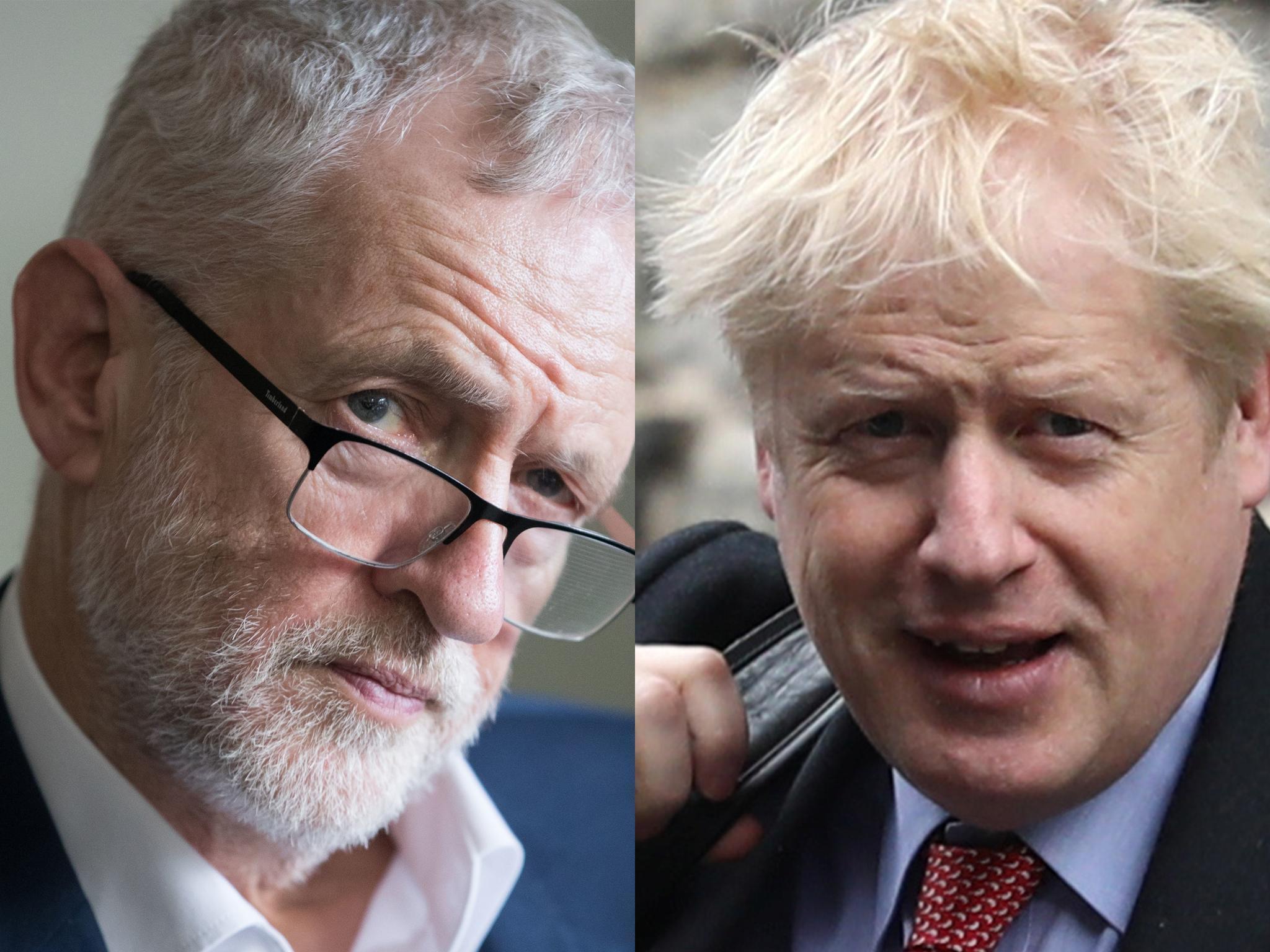Johnson wants to have his cake and eat it over public spending – what happened to having no magic money tree?
Inside Westminster: The prime minister wants to splash the cash on the NHS and the police but then admonish Labour for spending more

What a difference two years makes. At the 2017 general election, Theresa May memorably told a nurse struggling to cope after years without a pay rise: “There’s isn’t a magic money tree we can shake that suddenly provides for everything that people want.”
In this election, both the Conservatives and Labour are already shaking the tree so hard that its roots are quaking. The Tories used to bore us into submission by talking about their “long-term economic plan” to reduce the deficit. Today they have a long-term spending plan, and the parties act as if the deficit has been magically waved away. (It’s still there: the gap between government revenue and spending was £41.5bn in the financial year that ended in March.)
The Tories used to warn that Labour’s proposed spending spree would take Britain back to the bad old days of the 1970s, when it was the sick man of Europe until Margaret Thatcher cured it. Today the Conservatives join Labour in proposing a level of public spending not seen since that decade. In this election, the Tories have committed to a fiscal rule on day-to-day spending similar to the 2017 Labour one they attacked as profligate. Improving public services and a higher national living wage are seen by Team Boris as a critical part of its pitch to traditional Labour voters in the north and midlands: Brexit is not enough.
The Tories have belatedly discovered that interest rates are at a historic low, as Labour has long argued, and so have moved their fiscal goalposts to allow £20bn a year of extra infrastructure spending through higher borrowing. This is welcome and overdue. Labour promise an extra £55bn a year on such investment spending.
Labour has undoubtedly won the austerity argument. Not that the Tories will admit it, of course. As on Brexit, Boris Johnson wants to have his cake and eat it. He wants to splash the cash on the NHS, schools and the police, while attacking Labour for splashing even more.
There was a revealing line in Johnson’s opening speech of the campaign on Wednesday, when he described his project as “sensible, moderate but tax-cutting one nation conservatism”. During the Tory leadership election, he pledged to raise the starting level of the 40p tax rate from £50,000 to £80,000 a year, which would cost £9bn, while also taking people on low incomes out of the tax net.
Some cabinet ministers, including the chancellor Sajid Javid, worry that big tax cuts are incompatible with the Tories’ splurge on public services. Voters would sense the sums did not add up and the Tories would risk losing their reputation for fiscal responsibility.
A behind-the-scenes battle is raging between Johnson and Javid over what the Tory manifesto should say about tax cuts. Cabinet ministers are also wrangling over whether the manifesto should make an expensive commitment on social care – a national care service funded by taxation. Javid appears to be winning this arm-wrestling bout, as he tries to rein in Johnson’s “spend, spend, spend” instincts. “It is harder for us to make attacks on Labour stick when people see us locked in a bidding war with it,” one minister told me.
Labour is being more honest than the Tories by proposing tax rises rather than cuts – on the top 5 per cent of earners. The Institute for Fiscal Studies has said that the forecast £37bn budget surplus in 2022-23, which could be used for spending rises or tax cuts, has already been wiped out by spending commitments and accounting changes. It warned there would be next to no room for significant extra spending on services without tax rises.
Voters need more such scrutiny of all the parties’ plans, but Johnson wants less when it comes to those of the Tories. The Office for Budget Responsibility (OBR) was forced to scrap at the last minute its planned analysis of the public finances on Thursday. Officially, Whitehall judged that publication would breach rules on civil service impartiality during elections.
Yet the OBR was likely to have reported a downturn in the public finances this year that would have put Javid at risk of missing his previous fiscal target. Conveniently, he has now dumped it. The OBR report should be published.
Similarly, the Treasury should drop its refusal to reveal the economic impact of Johnson’s Brexit deal. All we have had from Javid is a dismissive statement that the deal is “self-evidently in our economic interest”. Yet the limited free trade agreement proposed has persuaded the Bank of England to lower its growth forecast.
Voters deserve more information about the impact of the deal for which Johnson seeks a mandate. Perhaps the truth would be too inconvenient.
Join our commenting forum
Join thought-provoking conversations, follow other Independent readers and see their replies
Comments